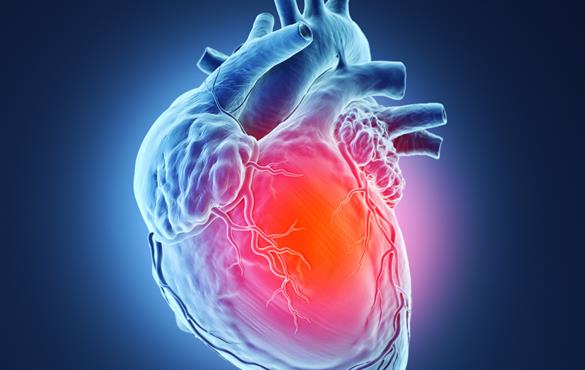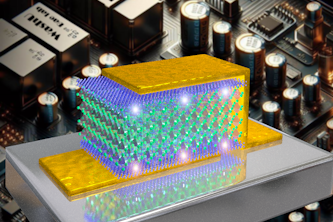Engineer to develop a drug-filled gel to repair heart after heart attack
Injecting these drugs directly into the heart will reduce the degradation of the cardiac extracellular matrix

After a heart attack, the cells in the heart muscle cannot get enough nutrients and oxygen to survive, so they die. A structural support network in the heart's wall can help those cells regenerate, however, two enzymes that break down the network are naturally increased after a heart attack, leaving the heart in a fight for its life.
Jianjun Guan, an engineer at the McKelvey School of Engineering at Washington University in St. Louis, is developing a new material that would deliver drugs directly to the damaged part of the heart to preserve the support network, or extracellular matrix while blocking the two enzymes. He will conduct the research with a four-year, $1.8 million grant from the National Institutes of Health's National Heart, Lung, and Blood Institute.
"When these enzymes are upregulated, they degrade the extracellular matrix, then the heart muscle becomes thinner," said Guan, professor of mechanical engineering & materials science. "The heart function decreases because the muscle is thinner, so the muscle cannot pump as much blood as before. We want to save the extracellular matrix and decrease the bioactivity of these enzymes."
Guan plans to deliver the drugs directly to the damaged heart tissue through a specially developed hydrogel, similar in consistency to Jell-O gelatin dessert. The gel would be given shortly after a heart attack and slowly release the drugs until dissolved, which would take about four weeks.
One of the drugs his hydrogel will deliver prompts the creation of blood vessels in the dead tissue so that it can regenerate. The other is a peptide that will stop the activity of enzymes, called matrix metalloproteinase-2 and 9, that break down the extracellular matrix. Since this method delivers drugs directly to the damaged part of the heart via injection, it would eliminate certain side effects and prevent cardiac fibrosis, caused by increased accumulation of extracellular matrix that impacts the function of the heart.
"We want to make sure we are working on projects to control the scar formation, because after a heart attack, there is scar tissue, and that tissue becomes bigger over time," Guan said. "Scarring is too stiff, and a muscle is soft. The stiff material will gradually damage the healthy soft tissue."
Current efforts to deliver the enzyme-blocking drugs have been inconsistent in clinical trials, Guan said.
"The drugs are given in a pill, and very little makes it to the heart," Guan said.
Based on their preliminary work, Guan and his team expect that injecting these drugs directly into the heart will reduce the degradation of the cardiac extracellular matrix, introduce new blood vessels in the heart and prevent cardiac fibrosis, all leading to improved cardiac function.
"This project is innovative because it creates translational drug delivery systems," Guan said. "It is relatively simple, inexpensive and multifunctional."




